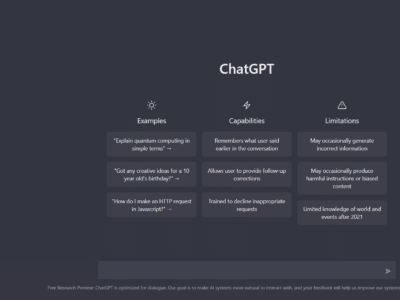Alongside my role at DB Education, I am an Assistant Principal at a large Somerset based secondary school. Below, I reflect upon our recent Ofsted inspection, which featured deep dives in English, Maths, History, Geography and PE in the hope of benefiting others preparing for the process. In particular I have outlined the questions asked in the Subject Leader interview elements of the deep dives, as well as some of the key lessons we learnt along the way.
Context
At around 12.30pm on Monday we received ‘the call’; Ofsted were coming for a two day inspection. The school had historically been the strongest in a town of three secondaries but had received a ‘requires improvement’ grade in 2017 after failing to adapt quickly enough to the Progress 8 measure under a legacy leadership team. A second ‘requires improvement’ grade followed four months after my arrival in 2019, meaning the pressure was very much on this time around.
After some negotiation Ofsted settled on five deep dives for the inspection, taking in English, Maths, History, Geography and PE. This was certainly more than I had expected but we felt well prepared, having placed a heavy focus on curriculum in recent years. We had also run an internal schedule of deep dives in preparation, mirroring the Ofsted process as closely as possible. There were five inspectors involved in our inspection, but only four were in attendance on each day. One inspector was in place for day one, with another taking their place on day two. The other three inspectors were on site for both days.
Inspection Schedule
The deep dives took place during the first day of the inspection. The second day focussed on SEND across the school, the single central record, tutor times and safeguarding. There were a small number of learning walks during the SEND element, but in the end none of the subjects outside of the deep dives were actually seen at all.
During the follow up phone call at around 3pm on the Monday, the inspectors provided a draft schedule for the two days that they wished to follow. This included meetings with the Subject Leaders of the deep dive subjects, first thing on day one. As the five deep dives were spread across four inspectors, the Subject Leaders for English, Maths, History and PE met with an inspector each at 8.15am on the Tuesday morning, with Geography following quickly at 9.55am. A member of SLT was able to sit in on each interview and I was fortunate enough to sit in on both the History and Geography interviews.
Deep Dive Subject Leader Interviews
The Subject Leader interviews each lasted an hour and took place with one of the inspectors. In our case, the History, Geography and PE interviews took place with inspectors who were subject specialists. Below is an outline of the questions asked, along with some notes and potential points worth raising.
Curriculum
- How did you design your curriculum? What was the starting point?
The inspectors will want to be clear that your curriculum is broad, well designed and ambitious. They will also want to be clear that you, and in their other interviews that members of your team, understand exactly what your curriculum is. It is worth noting that the inspectors had already downloaded our curriculum maps from the school website and brought a copy with them to the interview. Make sure these are up to date and that the things you talk through reflect what is on your website.
To my mind there are three key elements to the answer of this question. You will of course want to build on these, but may focus your answer around the following:
- We start with Key Stage 2, ensuring our curriculum is ambitious by building on what students know when they arrive with us. We are careful to ensure Year 7 does not simply recover content from primary school. We review this regularly, ensuring we redevelop our curriculum regularly as the primary school context changes.
- We then utilise the Key Stage 3 National Curriculum, ensuring we meet all elements of this as a minimum expectation of our curriculum breadth, but never seeing this as a limit to our ambition. We undertake regular audits and map our curriculum to the national one.
- We then utilise our local context, building the elements of the curriculum most relevant to our students. This helps to build cultural capital within our curriculum and inspire all of our students with a love of the subject.
- We start with Key Stage 2, ensuring our curriculum is ambitious by building on what students know when they arrive with us. We are careful to ensure Year 7 does not simply recover content from primary school. We review this regularly, ensuring we redevelop our curriculum regularly as the primary school context changes.
- How have you sequenced your curriculum and why?
You may well cover this within your previous answer, but the inspector will want to know how the curriculum is sequenced, the order of the topics that you cover and that there is good reasoning behind this. Ensure you have solid reasons for the sequence, linking this to the development of the golden threads mentioned later on. You may well talk about a spiral curriculum here, but ensure that each spiral builds on the previous, not simply repeating it.
We ask all subjects to have an A4 learning journey which puts into a visual format the sequence of learning, which was a big bonus here. I am a huge advocate of these when discussing curriculum with teaching staff, but also in supporting students with seeing the big picture of their learning and developing links between the content covered. - How do you make sure you cover the elements of the National Curriculum?
Despite being an Academy, the inspectors were keen to unsure the curriculum had sufficient breadth. Their measure of this is the national curriculum and they will want to confirm you audit your curriculum against this. Aim to meet all elements, but if you do not, have clear and well reasoned arguments for this. You should also be clear around what you replace these elements with to ensure a suitable breadth.
Our inspector seemed fairly keen to see a specific document for this, so it may well be worth creating a mapping document which matches your units of work to the national curriculum. - How do you know what is taught at Key Stage 2?
This was an interesting question and one I felt slightly less well prepared for. The inspector didn’t see knowing the Key Stage 2 curriculum as enough, but wanted to know if we knew specifically what was taught in our feeder primary schools. They asked when we last visited our feeder schools, how many we had and how many of these were inside of our Multi-Academy Trust.
If you are able, ensure you or a member of your team have visited at least some of your feeder primary schools and are aware of their curriculum. Link this into your curriculum planning. - What key threads flow through your entire curriculum? Can you talk through three examples?
The inspector was careful not to use the phrase, but was asking the Subject Leader here what the ‘Golden Threads’ of their curriculum were; those core concepts so important that they transcend individual units or topics.
Be clear around these. In History the Subject Leader spoke about comprehension, interpretation, research and analysis sources as key golden threads. Be prepared to then justify where these sit in your curriculum plan and ensure your teams are aware of them. - How do you ensure your golden threads are taught in equal measure?
The inspector then took a more detailed look at the curriculum map and, being a subject specialist, wanted to ensure that each thread appeared across the curriculum fairly equally. They challenged us here, asking for justification when certain areas appeared more often.
This links to the debate around knowledge and skills within a curriculum model. Skills have become a slightly dirty word under the new Ofsted framework, the implication being that a skills based curriculum aims to prepare students for an exam. Knowledge is king and the phrase we should be using when discussing curriculum content. Be careful when discussing your golden threads not to simply discuss key exam skills. - How do you differentiate your curriculum? Do any students not study your subject?
This felt almost a trick question, with the inspector wanting to confirm no students were removed from the subject. Firstly, be clear that all students study your subject. If this takes place as part of a reduced curriculum model for some SEND learners, emphasise that that the curriculum breadth is maintained, with a slight reducing in depth.
The inspector was also keen to hear about how the lessons and resources were differentiated. If you can take examples of this into the meeting you will likely be in for a slightly easier time, as our Subject Leaders did well. The key answer is that scaffolded differentiation is put in place as required, but that these are ultimately used with the aim of being removed in the future, once those learners catch up with the rest of the class.
Assessment
- How do you check student knowledge within lessons?
Teaching and Learning had been a big focus for the school since the last inspection, and this question was likely around judging consistency across the subjects looked at. Focus on your formative assessment strategies here, with Do Now tasks likely used at the starts of lessons and Cold Calling regularly in place to check for understanding. Ultimately, these answers will need to rely on your school wide strategy. - How do your more formal assessments look?
While the inspector had no interest at looking at any internal data, they were keen to understand how we assessed students across the key stages. Be absolutely explicit that you do not use GCSE assessments before Year 11, which is a big no go at present.
That aside, show you are rigorous and ambitious with what you want students to achieve, while following the school wide policy for summative assessments.
Staffing, CPD and Workload
- Talk to me about the context of your team. How many staff are there, are they all specialists?
This should be a fairly straightforward question for most subject leaders, but was really asking how many lessons were taught by non specialist teachers. - How do you support non-specialists through your CPD programme?
The previous question revealed that in both History and Geography an Assistant Principal taught a small number of Key Stage 3 groups, outside of their subject specialism. This then led to follow up questions around how subject specific CPD was delivered.
Focus on your use of department meetings here and ensure that subject specific CPD is included. Share best practice and train each other on your areas of specialism. Again, if you can take along any examples here you will likely get an easier time. - How is workload managed across the school?
Hopefully a fairly straightforward question, but a key one. Be honest, but consider whether now is the time to air any major concerns for the first time!
Deep Dive Teacher Interviews
At the end of day one, the inspectors met with the deep dive subjects. Each inspector met with one subject, but ours did decide to do History and Geography together. Unfortunately, members of the leadership team were not allowed to sit in on these meetings.
Questions seemed to focus around workload, school wide strategies and safeguarding.
Hopefully the above is a useful oversight of the lessons we learnt during our Ofsted inspection and associated deep dives. If you would like to find out any more, please do get in touch.


